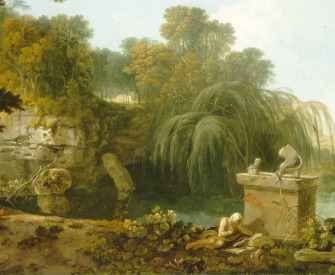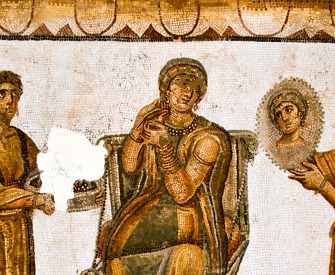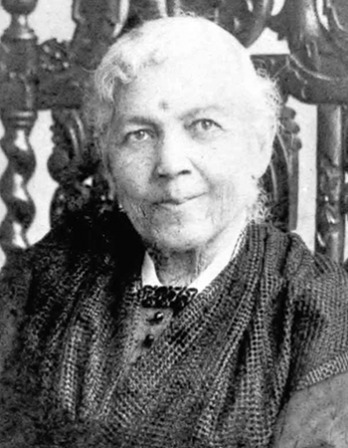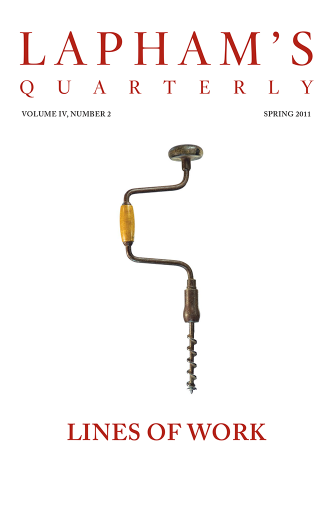The fundamental concept in social science is power, in the same sense in which energy is the fundamental concept in physics.
—Bertrand Russell, 1938A More Vindictive Energy
Solomon Northup is pushed past his limits.
It was now the season of hoeing. I was first sent into the cornfield, and afterward set to scraping cotton. In this employment I remained until hoeing time was nearly passed, when I began to experience the symptoms of approaching illness.
I was attacked with chills, which were succeeded by a burning fever. I became weak and emaciated, and frequently so dizzy that it caused me to reel and stagger like a drunken man. Nevertheless, I was compelled to keep up my row. When in health I found little difficulty in keeping pace with my fellow laborers, but now it seemed to be an utter impossibility. Often I fell behind, when the driver’s lash was sure to greet my back, infusing into my sick and drooping body a little temporary energy. I continued to decline until at length the whip became entirely ineffectual. The sharpest sting of the rawhide could not arouse me.
After a most laborious day I arrived at the gin house with my load. When the scale determined its weight to be only ninety-five pounds, not half the quantity required of the poorest picker, Master Epps threatened the severest flogging, but in consideration of my being a “raw hand,” concluded to pardon me on that occasion. The following day, and many days succeeding, I returned at night with no better success—I was evidently not designed for that kind of labor. I had not the gift—the dexterous fingers and quick motion of Patsey, who could fly along one side of a row of cotton, stripping it of its undefiled and fleecy whiteness miraculously fast. Practice and whipping were alike unavailing, and Epps, satisfied of it at last, swore I was a disgrace—that I was not fit to associate with a cotton-picking “nigger”—that I could not pick enough in a day to pay the trouble of weighing it, and that I should go into the cotton field no more. I was now employed in cutting and hauling wood, drawing cotton from the field to the gin house, and performed whatever other service was required. Suffice to say, I was never permitted to be idle.
During the two years Epps remained on the plantation at Bayou Huff Power, he was in the habit, as often as once in a fortnight at least, of coming home intoxicated from Holmesville. The shooting matches almost invariably concluded with a debauch. At such times he was boisterous and half-crazy. Often he would break the dishes, chairs, and whatever furniture he could lay his hands on. At other times he would come home in a less brutal humor. Then there must be a merrymaking. Then all must move to the measure of a tune. Then Master Epps must needs regale his melodious ears with the music of a fiddle. Then did he become buoyant, elastic, gaily “tripping the light fantastic toe” around the piazza and all through the house.
All of us would be assembled in the large room of the great house, whenever Epps came home in one of his dancing moods. No matter how worn out and tired we were, there must be a general dance. When properly stationed on the floor, I would strike up a tune.
“Dance, you damned niggers, dance,” Epps would shout.
Then there must be no halting or delay, no slow or languid movements; all must be brisk, and lively, and alert. “Up and down, heel and toe, and away we go” was the order of the hour. Epps’ portly form mingled with those of his dusky slaves, moving rapidly through all the mazes of the dance.
Usually his whip was in his hand, ready to fall about the ears of the presumptuous thrall, who dared to rest a moment, or even stop to catch his breath. When he was himself exhausted, there would be a brief cessation, but it would be very brief. With a slash, and crack, and flourish of the whip, he would shout again, “Dance, niggers, dance,” and away they would go once more, pell-mell, while I, spurred by an occasional sharp touch of the lash, sat in a corner, extracting from my violin a marvelous quick-stepping tune. The mistress often upbraided him, declaring she would return to her father’s house at Cheneyville; nevertheless, there were times she could not restrain a burst of laughter on witnessing his uproarious pranks. Frequently, we were thus detained until almost morning. Bent with excessive toil—actually suffering for a little refreshing rest, and feeling rather as if we could cast ourselves upon the earth and weep—many a night in the house of Edwin Epps have his unhappy slaves been made to dance and laugh.
Notwithstanding these deprivations in order to gratify the whim of an unreasonable master, we had to be in the field as soon as it was light, and during the day perform the ordinary and accustomed task. Such deprivations could not be urged at the scales in extenuation of any lack of weight, or in the cornfield for not hoeing with the usual rapidity. The whippings were just as severe as if we had gone forth in the morning, strengthened and invigorated by a night’s repose. Indeed, after such frantic revels, he was always more sour and savage than before, punishing for slighter causes, and using the whip with increased and more vindictive energy.

Solomon Northup
From Twelve Years a Slave. Born to free parents in Essex County, New York, Northup worked seasonal jobs and played the violin. In 1841 two white men invited him to perform at a concert in New York City and then took him to Washington, where he was drugged, handcuffed, and sent to New Orleans under the name of Platt. He worked in slavery for a year as a carpenter before arriving at Edwin Epps’ cotton plantation. Northup was rescued in 1853 after sending letters in secret to his family through an abolitionist acquaintance of Epps.



